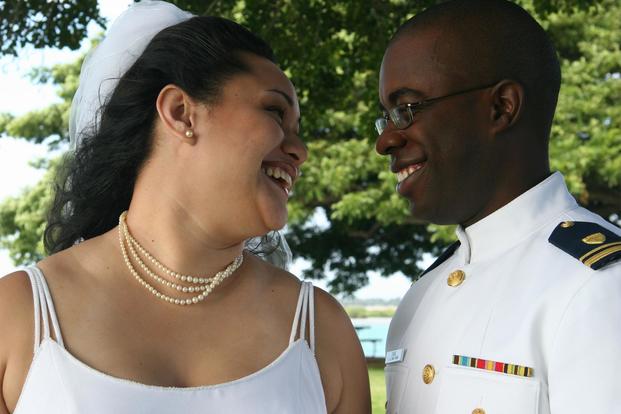The U.S. Supreme Court has elected not to hear a case that questioned why members of the U.S. military can't sue the federal government for medical malpractice by military doctors.
In a rare display of unity between jurists of the divided court, however, Justice Ruth Bader Ginsburg expressed support for granting the petition while Justice Clarence Thomas penned a dissent to the denial of the petition, Walter Daniel v. the United States.
"Such unfortunate repercussions -- denial of relief to military personnel and distortions of other areas of law to compensate -- will continue to ripple through our jurisprudence as long as the Court refuses to reconsider Feres," Thomas wrote Monday.
The order released Monday gave insight into the justices' debate over the Feres doctrine, a 69-year-old court ruling that prohibits service members from suing the federal government for injuries deemed incidental to military service.
As with any case petitioned to the court, the likelihood of the justices accepting it was slim, as they take roughly 70 to 80 cases a year out of the thousands they receive. But the Daniel case, which involved a Navy nurse who died during childbirth at a naval hospital in Washington State, was not immediately rejected by the court when it was first petitioned in March, providing hope that it might be accepted.
Related content:
- Controversial Military Medical Malpractice Ruling May Be Closer to Overturn than Ever
- Military Medical Malpractice Case Stays Alive in Supreme Court
- Bill Would let Troops Sue For Military Medical Malpractice
Ultimately, the only two justices who previously had taken issue with Feres -- Ginsburg, before she became a justice, and Thomas, in a two-page dissent in 2013 on another Feres case -- expressed support for hearing the case.
Citing the writings of the late Justice Antonin Scalia, Thomas wrote, "I have explained before that 'Feres was wrongly decided and heartily deserves the widespread, almost universal criticism it has received.' I write again to point out the unintended consequences of this court's refusal to revisit Feres."
The case centered around Navy Lt. Rebekah "Moani" Daniel, who died March 9, 2014, during childbirth at Naval Hospital Bremerton, Washington, in the same labor and delivery room where she worked. She bled to death within four hours of giving birth to a healthy baby girl. The lawsuit, filed by Daniel's husband Walter, alleged that the doctors failed to respond in a timely manner to Daniel's postpartum bleeding.
Walter Daniel said Monday that the dismissal deprives young daughter Victoria and him of the opportunity to learn what really happened in the room the day Moani Daniel died.
"The bright note I will share with Victoria is that her mother inspired our good fight and inspired so many others as well," Daniel said in a statement. "I've heard from hundreds of service members and their families cheering us on and sharing what the promise of our efforts would mean to them and their ability to seek answers through the justice system."
Daniel's attorney Andrew Hoyal said he is "clearly disappointed" by the decision but thankful that Thomas and Ginsburg recognized the importance of the case.
"We knew from the beginning that this would be a long journey with even longer odds, but we're proud of the progress we've made and the light we've shed on this issue," Hoyal said.
As a result of the Feres ruling -- a decision that encompasses three separate court cases dating back to 1950 -- U.S. military personnel can sue the government only in limited circumstances under the Federal Tort Claims Act (FTCA).
They cannot sue for injuries sustained on active duty or resulting from the negligence of other military personnel -- a prohibition seen as vital for protecting those who make crucial battlefield decisions, including operational commanders and combat doctors and medics.
But Feres extends beyond the battlefield. Troops can't sue the government for medical or legal malpractice.
In previous denials of court challenges to Feres, members of the U.S. Supreme Court have said that Congress must change the Federal Tort Claims Act to allow military members to sue for malpractice.
This year, chairwoman of the House Armed Services personnel subcommittee Rep. Jackie Speier, D-California, introduced a bill to do just that: The Sgt. First Class Richard Stayskal Military Medical Accountability bill would allow personnel to sue for damages related to injury or death in cases of medical malpractice by military doctors that take place in a military hospital or clinic setting.
Named for a former Marine and active-duty Green Beret who has terminal lung cancer and whose early tumor was missed by Army physicians, the bill would allow those with pending or future claims to sue.
It would not apply to past cases or to mistakes made outside a hospital or clinic setting, such as in combat at battalion aid stations or on ships.
During a hearing in April, Speier said the bill is needed because the U.S. Supreme Court erred in ruling on Feres in 1950 -- a clear case, she said, of the justices legislating from the bench.
"A [prisoner] can sue under the FTCA for malpractice but a service member cannot who is not in a combat setting? This is a gross example of judicial activism of the worse kind," Speier said.
The Bill, H.R. 2422, has been referred to the House Judiciary Committee for consideration. It has bipartisan support with 10 co-sponsors.
Walter Daniel said he supports the legislative effort and added that the fight continues for other service members. "Moani's story has generated a groundswell of momentum to correct the injustice of Feres, and now this issue is going all the way to Capitol Hill," he said.
-- Patricia Kime can be reached at Patricia.Kime@Military.com. Follow her on Twitter at @patriciakime.













